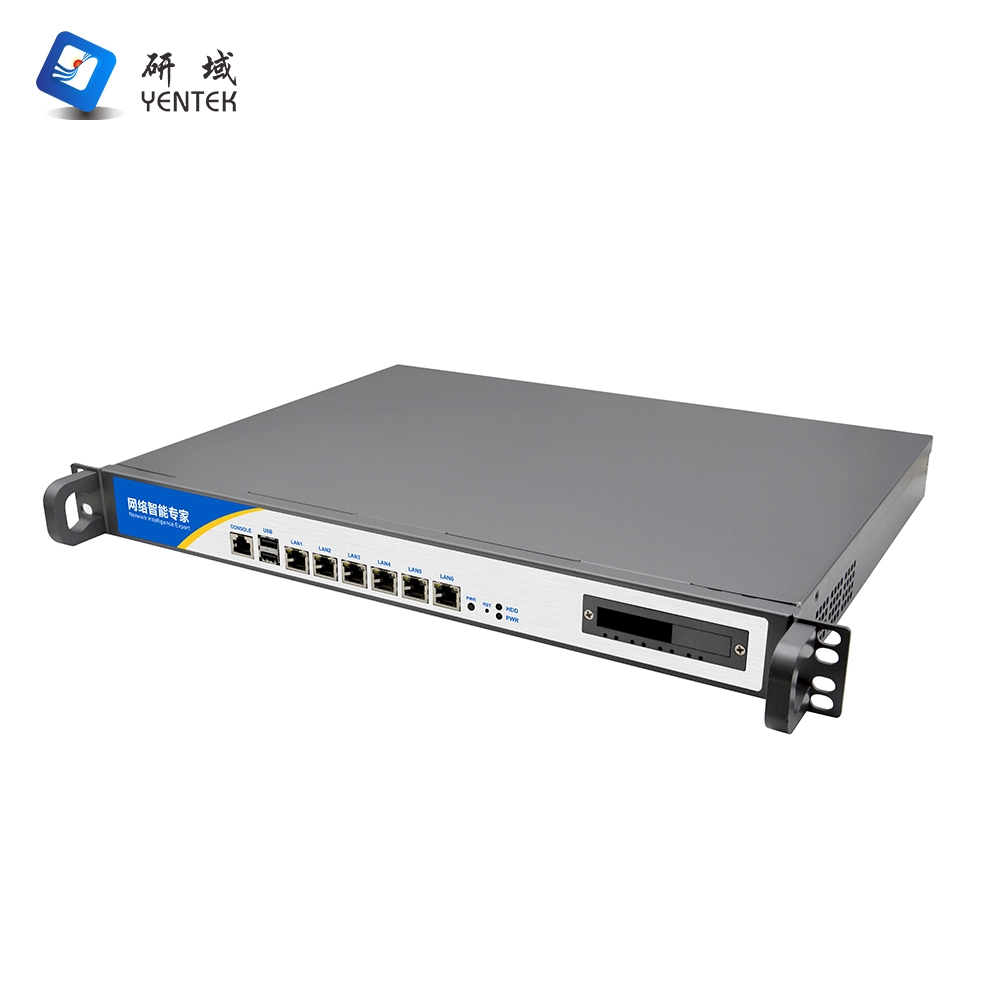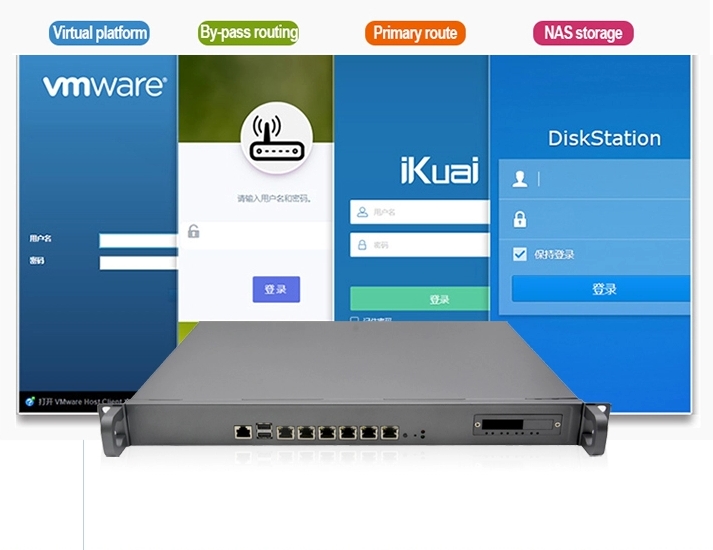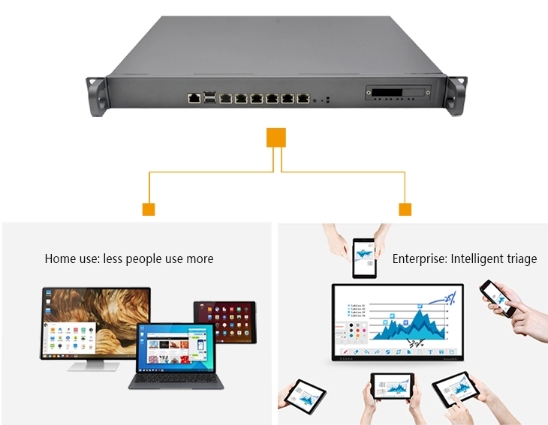Maximizing Network Performance: The Role of Firewall PC in Optimizing Data Transfer
In digital landscape, ensuring efficient data transfer is critical for businesses and organizations. As data volumes grow and network demands increase, the role of firewall PCs becomes increasingly important in optimizing network performance. YENTEK®, a high-tech enterprise specializing in industrial computing products, recognizes the significance of integrating advanced firewall solutions to enhance data transfer efficiency. This blog post will explore how firewall PCs contribute to maximizing network performance, the benefits they offer, and best practices for implementation.
Understanding Firewall PCs
A firewall PC is a dedicated computer or appliance configured to monitor and control incoming and outgoing network traffic based on predetermined security rules. It acts as a barrier between a trusted internal network and untrusted external networks, such as the internet. Firewall PCs can be hardware-based, software-based, or a combination of both, providing flexibility in deployment according to organizational needs.

Key Functions of Firewall PCs
Traffic Monitoring: Firewall PCs continuously monitor network traffic for suspicious activities or policy violations.
Access Control: They enforce access control policies to determine which users or devices can connect to the network.
Threat Prevention: By filtering out malicious traffic, firewall PCs help prevent cyber threats such as malware, ransomware, and unauthorized access.
Data Logging: They maintain logs of network activity for auditing and compliance purposes.

The Importance of Firewall PCs in Data Transfer Optimization
1. Enhanced Security
One of the primary roles of firewall PCs is to enhance network security. By filtering out potentially harmful traffic before it reaches critical systems, firewalls protect sensitive data during transfer. This security layer is essential for organizations that handle confidential information or operate in regulated industries.
2. Improved Network Performance
Firewall PCs can optimize network performance by managing bandwidth usage effectively. By prioritizing certain types of traffic (such as VoIP or video conferencing) over others (like file downloads), firewalls ensure that high-priority applications receive the necessary bandwidth for seamless operation. This prioritization reduces latency and enhances user experience during data transfers.
3. Traffic Shaping
Traffic shaping is a technique used by firewall PCs to control data flow across the network. By regulating bandwidth allocation based on predefined policies, organizations can prevent congestion during peak usage times. This capability is particularly beneficial for businesses with fluctuating data transfer needs, allowing them to maintain optimal performance even under heavy loads.
4. Reduced Latency
Latency refers to the delay experienced during data transfer across a network. Firewall PCs can help reduce latency by optimizing routing paths and minimizing unnecessary hops between devices. By efficiently directing traffic and eliminating bottlenecks, firewalls contribute to faster data transfer speeds.
5. Network Segmentation
Firewall PCs facilitate network segmentation by creating distinct zones within the network. This segmentation enhances security and performance by isolating different types of traffic. For example, separating guest Wi-Fi from internal business networks reduces the risk of unauthorized access while improving overall network efficiency.

Best Practices for Implementing Firewall PCs
1. Regular Configuration Audits
To ensure optimal performance, organizations should conduct regular audits of their firewall configurations. This includes reviewing access control lists (ACLs), security policies, and traffic rules to identify any inefficiencies or outdated settings that may hinder performance.
2. Utilize Advanced Features
Modern firewall PCs come equipped with advanced features such as intrusion detection systems (IDS), intrusion prevention systems (IPS), and application-aware filtering. Leveraging these features enhances security while optimizing data transfer processes.
3. Monitor Network Traffic
Continuous monitoring of network traffic provides valuable insights into usage patterns and potential issues affecting performance. Organizations should implement robust logging and reporting mechanisms to track traffic trends and identify anomalies that may indicate security threats or performance bottlenecks.
4. Optimize Rule Sets
Complex firewall rules can lead to performance degradation due to increased processing overhead. Simplifying rule sets by removing unnecessary rules or consolidating similar rules can significantly improve firewall efficiency and speed up data transfers.
5. Regular Firmware Updates
Keeping firewall firmware up-to-date ensures that organizations benefit from the latest security patches and performance enhancements. Regular updates help mitigate vulnerabilities that could be exploited by cybercriminals while improving overall system stability.

Conclusion
Maximizing network performance is essential for organizations seeking to enhance productivity and maintain competitive advantages in today's digital landscape. Firewall PCs play a pivotal role in this optimization process by providing robust security measures while improving data transfer efficiency.
YENTEK®'s commitment to developing advanced industrial computing products positions them as a leader in this field, enabling businesses to leverage cutting-edge technology for enhanced network performance. By implementing best practices for firewall management and staying abreast of emerging trends in cybersecurity, organizations can ensure secure, efficient data transfers that meet their evolving needs.
Uninterrupted Connectivity: The Benefits of Using a Firewall PC
Exploring the Benefits of Firewall PCs: Secure, Protective, and Reliable
Enhancing Cybersecurity with Configurable Firewall PCs: A Comprehensive Guide
Solving Space Constraints with Mini-ITX Motherboards in Small Form Factor Builds
Overcoming Size Limitations: Mini-ITX Motherboards for Industrial Automation Solutions
The Advantages of Mini-ITX Motherboards in Small Form Factor PCs
Mini-ITX Motherboards: The Ultimate Solution for Portable Workstations
